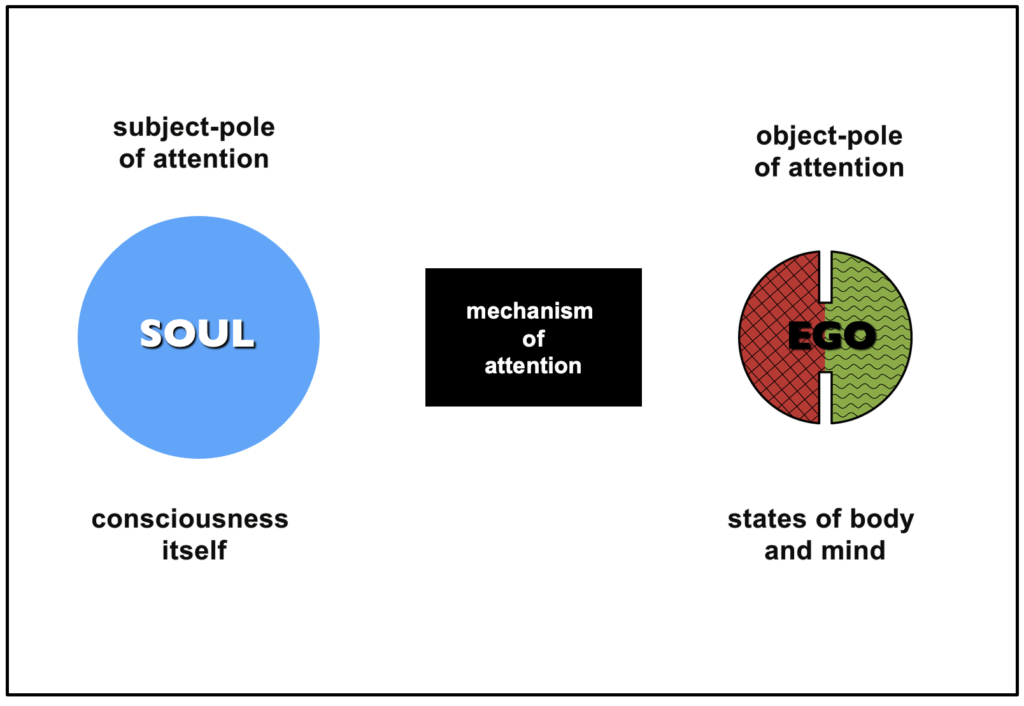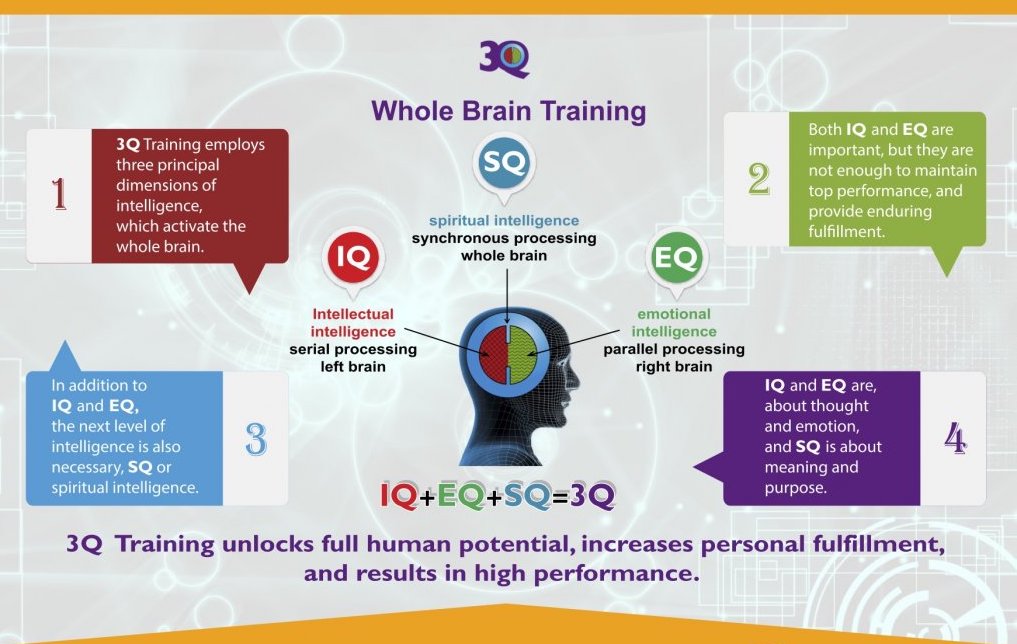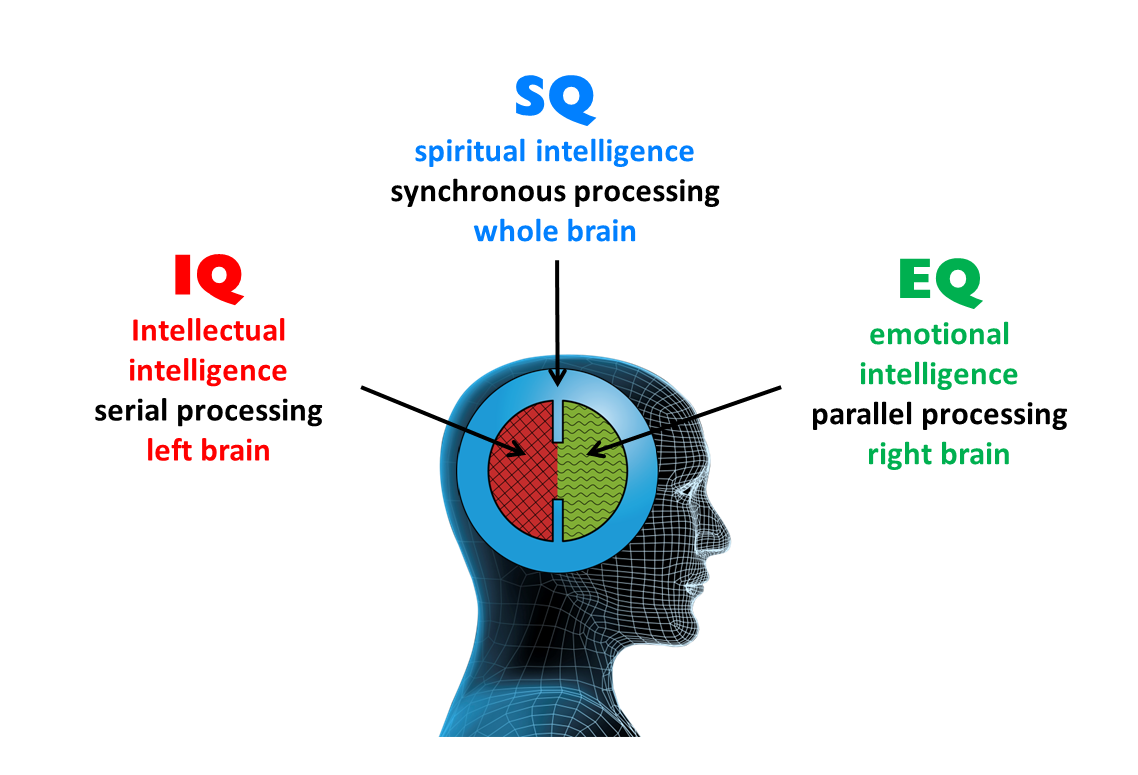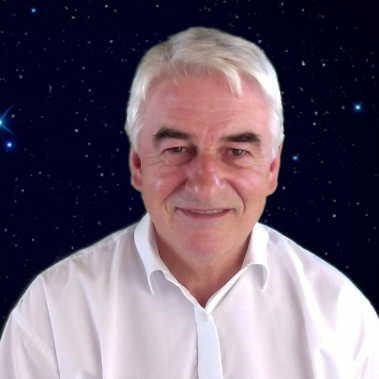Global Conference on Education & Teaching
June 2021, Vienna, Austria
Historically, the education system has been focused primarily on developing IQ, or intellectual intelligence. IQ manages facts and information, using logic and rational analysis. Less time and attention is given in schools to developing EQ skills. EQ is emotional intelligence, which is necessary to feel and regulate one’s emotions, while being sensitive to the feelings of others.
Both IQ and EQ are essential, but they are not sufficient in themselves to maintain top performance, ensure personal wellbeing, and provide enduring fulfilment. The next dimension of intelligence is also necessary, which is SQ, or spiritual intelligence.
Spiritual intelligence is an innate dimension of intelligence that everyone possesses. SQ is not religious. Spiritual intelligence depends not on belief but on direct personal experience beyond the ego.
We use SQ in order to:
- find meaning and purpose
- maintain emotional balance
- sustain mental health
- feel connection to the community
- perform at our best
- attain full potential
- find enduring fulfilment
Scientific Basis
Spiritual intelligence has a scientific basis founded on a general theory of intelligence based on the human operating system, combining findings from four independent fields of scientific research: cognitive psychology, transpersonal psychology, psychoanalysis, and neuroscience (1):
Cognitive Psychology
Studies in cognitive psychology have established the benefits of Mindfulness training (MBCT), with particular reference to anxiety and depression (2). These studies confirm that the state of presence can be identified neurologically, experienced repeatedly, and verified intersubjectively. Consequently, such studies have established that the distinct sense of self experienced in presence, associated with being consciousness itself (or the soul), qualifies as a valid subject of scientific investigation.
Psychoanalysis
Early studies in psychoanalysis demonstrated that object-relations are the means by which personal identity is established (3)(4). This observation was originally documented a long time ago by ancient traditions of spiritual wisdom, notably by Vedanta and Buddhism (5)(6). Nevertheless, in the western intellectual tradition, this finding was first confirmed by Freud in his founding work on psychoanalysis at the turn of the twentieth century. More recent psychoanalytic studies of object-relations confirm that the ego grows by means of identifying with states of body and mind at the object-pole of attention (7).
Transpersonal Psychology
Findings in transpersonal psychology, as confirmed by countless meditators over thousands of years, verify that consciousness itself, which is free from identification with objects of attention, experiences the qualities traditionally ascribed to the soul. The energy of consciousness itself, which is known as spirit, is experienced at the subject-pole of attention in moments of presence, in the form of wisdom, compassion, integrity, joy, love, creativity, and peace (8). Spirit is the source of spiritual intelligence (9).
Neuroscience
Neurological studies have established that the experience of presence is associated with hemispheric synchronisation and whole-brain activation at a frequency of 40Hz (10). At this frequency part-brain functions from both hemispheres are integrated into the field of the whole brain, thus combining mind, self, and world into a meaningful whole (11). 40Hz whole-brain activation therefore correlates neurologically with spiritual intelligence. Neuroscience thus confirms that SQ is hard-wired in the human brain. However, SQ rarely occurs spontaneously. Therefore, it’s necessary to activate SQ intentionally, in order to experience the benefits of spiritual intelligence in daily life. The 3Q method instantly activates spiritual intelligence intentionally and can be used in any situation, including in adverse circumstances (12).

Human Operating System
Human Operating System
Just as a computer and a phone have an operating system, so does our own awareness. The twin poles of attention represent the basic operating system of human awareness. The twin poles of attention are the subject-pole and the object-pole (13). At the object-pole is everything we are aware of, including thoughts, emotions, beliefs, perceptions, memories, hopes, ideas, self-image, etc. At the subject-pole of attention is consciousness itself.
The ego is identified with the object-pole of attention, and the soul is identified with the subject pole of attention. The ego is the false self. The ego is founded on identification with the body and mind at the object-pole of attention. The ego exercises IQ and EQ but has no access to SQ. The soul is your true self. The soul is founded on identification with consciousness itself at the subject-pole of attention. The soul exercises IQ and EQ with SQ.
Being the ego means identifying with your thoughts and emotions and experiencing yourself as being your body and mind. The ego feels dissatisfied and insufficient, and constantly seeks satisfaction elsewhere, in the next experience, using this moment as a means to the next, and reacting to each moment from a state of lack.
Being the soul means experiencing yourself as being consciousness itself. The native qualities of consciousness itself are experienced at the subject-pole of attention in moments of presence, in the form of wisdom, compassion, integrity, joy, love, creativity, and peace. Consequently, the soul does not seek satisfaction elsewhere, in the next experience, because the soul is already happy, and therefore does not use this moment as a means to the next. Instead of reacting from a state of lack, the soul responds in each moment from a state of prior fulfilment.
The ego and the soul use IQ and EQ for different purposes. The ego uses IQ and EQ for personal gain, in the constant search for compensation for the inevitable dissatisfaction of being the ego. But the intelligence of the soul has a different purpose. SQ uses IQ and EQ for the benefit of all, to express the native qualities of consciousness itself, which are experienced at the subject pole of attention in moments of presence, in the form of wisdom, compassion, integrity, joy, love, creativity, and peace.

Now and in the Future
Some schools are now beginning to incorporate training in SQ skills, with the introduction of mindfulness and other forms of meditation into the school curriculum. 3Q programs offer the next generation of SQ training in the form of Applied SQ Skills.
The Need for SQ Skills
1. MEANING AND PURPOSE
Teenagers have a strong need to understand themselves and understand life. But they no longer have ready-made answers to questions of meaning and purpose, because traditional sources of meaning and purpose (mainstream religion and mainstream culture) no longer offer convincing answers to many young people. Therefore, it is vital that teenagers have alternative tools for finding meaning and purpose in their lives. Consequently, young people need access to the full spectrum of their intelligence: not just their intellectual and emotional intelligence, their IQ and EQ, but also their meaning-making intelligence, their SQ.
2. SELF-ESTEEM
The ego’s self-esteem is fragile and unreliable, because it depends on changing circumstances and passing states of mind and emotion at the object-pole of attention. But true self-esteem, based on SQ, is constant, secure and complete, because it depends on the native qualities of the true self at the subject-pole of attention. SQ skills therefore strengthen self-esteem.
3. SELF-CONFIDENCE
Spiritual intelligence is free of the ego’s self-doubt and self-importance, and has instant access to the calm confidence of the true self. Therefore SQ, and not an ego-based self-image, is the real basis for reliable and enduring self-confidence.
4. EMPATHY
Empathy is a skill of emotional intelligence, and it represents the hope for the future of the world. But EQ cannot sustain empathy for long without access to the source of love and kindness that is inexhaustible, which can only be found beyond the ego. Consequently, without SQ as the foundation, empathy soon burns out, or finds only selective application to a limited circle of family, friends, and associates, and perhaps extending to ethnic group or nation, but excluding those outside of a restricted circle of care. SQ is therefore necessary to replenish empathy and extend it to all people without discrimination.
5. RELATIONSHIPS
Our brains are wired for love and connection, but the ego rewires them for fear and protection. That’s why healthy and harmonious relationships are difficult unless you shift beyond ego. SQ skills are therefore needed to meet the challenges involved in all relationships, especially close personal relationships.
6. IMPROVE ACADEMIC PERFORMANCE
Academic success and achievement are not merely a matter of IQ. It’s also necessary to use EQ and SQ for top performance in academic subjects (as in all other activities whether academic or not). SQ improves the application of IQ by improving focus and reducing distractions, and SQ increases EQ by enhancing sensitivity to the whole field of awareness.
7. FULL POTENTIAL
In order to attain their full potential, teenagers need access to the full spectrum of the dimensions of their intelligence.
8. SOCIAL CHALLENGES
Spiritual intelligence boosts self-esteem and self-confidence, and increases emotional intelligence, which makes it easier to meet challenges presented by new social situations that are a normal part of everyday life, especially when growing up.
9. EXAM STRESS
When you use the full spectrum of the dimensions of your intelligence you can pre-empt stress before it happens, rather than just react to stress after it happens. SQ skills therefore help to reduce the stress of exams.
10. ANXIETY
Spiritual intelligence connects to the source of peace and equanimity which is free of fear and worry. The more SQ, the less anxiety. Consistent use of SQ over time rewires the brain by a process of neuroplasticity and results in resetting anxiety to a lower level or even eliminating anxiety altogether.
11. MENTAL HEALTH
The statistics on teenage depression, anxiety, drug addiction, and suicide have all increased in recent decades. These statistics show a lack of SQ. Access to the full spectrum of intelligence is therefore protective of mental health. This is not surprising. Everything generally works better when all parts operate together. It’s the same with the dimensions of our intelligence. Preventative Mental Health programs for teenagers are therefore recommended to include training in SQ in order to develop and balance all dimensions of intelligence for optimal mental health.
12. REDUCE ANTI-SOCIAL BEHAVIOUR
Spiritual intelligence skills reduce anti-social behaviour and bullying in teenagers and adults, both at school and later in the workplace.
13. REDUCE DRUG ADDICTION
Spiritual intelligence fosters social connections and reduces the need for substitutes for positive social connections, such as self-prescribed drug use. Training in SQ skills is therefore protective against recreational drug use and drug addiction.
14. REDUCE SUICIDE RISK
Spiritual intelligence feels beyond immediate emotional reactions and connects to the deeper inherent reality which is life-sustaining. The experience of SQ is therefore protective against self-harm. Consequently, training in SQ helps to reduce the risk of suicide.
15. PROPAGANDA-PROOF
In the absence of life-positive, fulfilling, and credible sources of meaning and purpose, young people are vulnerable to the propaganda of political extremism and religious bigotry, in search of the meaning and purpose that is missing in their lives. SQ makes up for this deficit by providing access to a higher dimension of intelligence beyond the ego.
16. IMPORTANT WORK SKILLS
Spiritual intelligence skills are increasingly necessary both at school and in the workplace. Students need training during school years in the transpersonal skills required to thrive later in the workplace, in the volatile, uncertain, complex, and ambiguous conditions they will encounter.
17. IMPORTANT LIFE SKILLS
Spiritual intelligence skills are necessary during school and after school and throughout the whole of life. SQ is required for achieving full potential and a life of meaning, purpose and fulfilment.
18. MATURITY
Spiritual intelligence capabilities are necessary for human maturity. Responding free of ego is the essence of responsibility.
19. PARENTING
Spiritual intelligence is the foundation of parenting skills. Selfless love is a basic requirement of caring for children.
20. CITIZENSHIP
Spiritual intelligence skills are needed to participate in a democracy. Critical thinking is necessary to discern truth from falsehood. By shifting beyond ego, SQ enhances critical thinking capabilities.
21. HUMAN RIGHTS PROTECTION
Spiritual intelligence skills are needed at a collective level in order to raise the standards of accountability in collective governance. Collective SQ is the foundation and guarantee of a society free of tyranny.
22. SOCIETAL DEVELOPMENT
The lack of collective SQ retards the development of society. Too many competing egos destroy collective benefits.
23. COOPERATION AND TOLERANCE
Collective SQ creates cooperation and tolerance between people at the interpersonal level, and between different groups in society, and between different cultures, religions, and nations.
24. CULTURAL EVOLUTION
Widespread adoption of spiritual intelligence as a personal code of conduct raises the standard of accountability in collective governance in response to public demand. When standards in governments and corporations are based on spiritual intelligence, the energy of love will turn into a social and political force, as never before in history. The inclusion of training in spiritual intelligence in the school curriculum therefore heralds a new era of social justice and human rights, which are the foundations of shared prosperity and peace.
The New Paradigm Whose Time Has Come
Spiritual intelligence is not religious and does not require beliefs of any kind. Spiritual intelligence is entirely a matter of experiencing the truth of who you are.
Consider this: whatever arises to your attention, you are the one who is aware of it. Therefore, you are not your body and you are not your mind. Instead, you are the consciousness of your body and mind, including all the contents of your mind (all thoughts, all emotions, and all perceptions).
Therefore, no matter how sceptical you are, you cannot escape the essential truth that you are not your thoughts and emotions, but you are consciousness itself. Consciousness itself feels inherently peaceful, compassionate and loving. This is the essence of spiritual intelligence.
When we live with spiritual intelligence, it is a liberating experience because it frees us from the false doctrine of scientific materialism, which reduces human beings to machines and persuades us that life is nothing more than a random biological accident.
Scientific materialism represents the most painful and most deranged limitation of the conditioned mind in contemporary mainstream culture, and is responsible for extremes of existential angst that have driven millions of people to inconsolable desperation and despair.
This false doctrine poisons countless lives and drives people to insane lengths to compensate for the associated existential pain. The consequences continue to undermine human society and destroy attempts to create global cooperative community.
This toxic mentality can no longer be tolerated if human society is to survive and thrive. The remedy can only be found in the light of spiritual truth. This is why spiritual intelligence is emerging now. Spiritual intelligence is the new paradigm whose time has come (14).
References

3Q Practitioner Training Course
Do you want to accelerate your own personal and spiritual growth, and teach others to do the same? The 3Q Practitioner Training Course trains and certifies Spiritual Intelligence Practitioners.
Spiritual Intelligence is a higher dimension of intelligence beyond the ego that has access to the advanced capabilities of the true self. This Course is based on secular spirituality not on religious beliefs. Consequently, the methodology used to activate spiritual intelligence is not founded on articles of faith but on experience and knowledge, backed by evidence from related fields of scientific research. Certified Practitioners are provided with the training materials to coach their clients in spiritual intelligence, and conduct workshops in spiritual intelligence for leaders and organisations, and for the general public.
As the intelligence of the true self beyond the ego, spiritual intelligence (SQ) has many benefits that exceed the scope of intellectual intelligence (IQ) and emotional intelligence (EQ). Spiritual intelligence relieves anxiety and depression and the extreme pain of meaninglessness and despair that is often associated with ego states of awareness. Freedom from ego, as experienced with SQ, grants wisdom and clarity of vision, combined with more empathy and compassion, which increases creativity and intuition, and results in greater personal fulfilment and better performance on important life skills and work skills. Spiritual intelligence therefore represents the most powerful resource for personal and professional growth and fulfilment.
Widespread adoption of spiritual intelligence as a personal code of conduct raises the standard of accountability in collective governance, in response to public demand. When standards in governments and corporations are based on spiritual intelligence, the energy of love will turn into a social and political force, as never before in history. Public training in spiritual intelligence therefore heralds a new era of human rights and social justice, which form the foundation for global cooperative community, shared prosperity, and world peace.
As a 3Q Practitioner you will be equipped to introduce spiritual intelligence in the context of contemporary secular culture, and contribute to the next stage in the evolution of collective consciousness. When a tipping point is reached, the emerging next stage of collective consciousness will result in global transformation, founded not on beliefs of any sort, or on government control, or on mass media narratives enforced by censorship of contrary views, but founded instead on the inherent qualities of consciousness itself, such as love, wisdom, and peace, which everyone can experience by activating their spiritual intelligence.
For more information about the 3Q Practitioner Training Course, click here.
© 2021 – 2024, Richard Griffiths.


Recent Comments